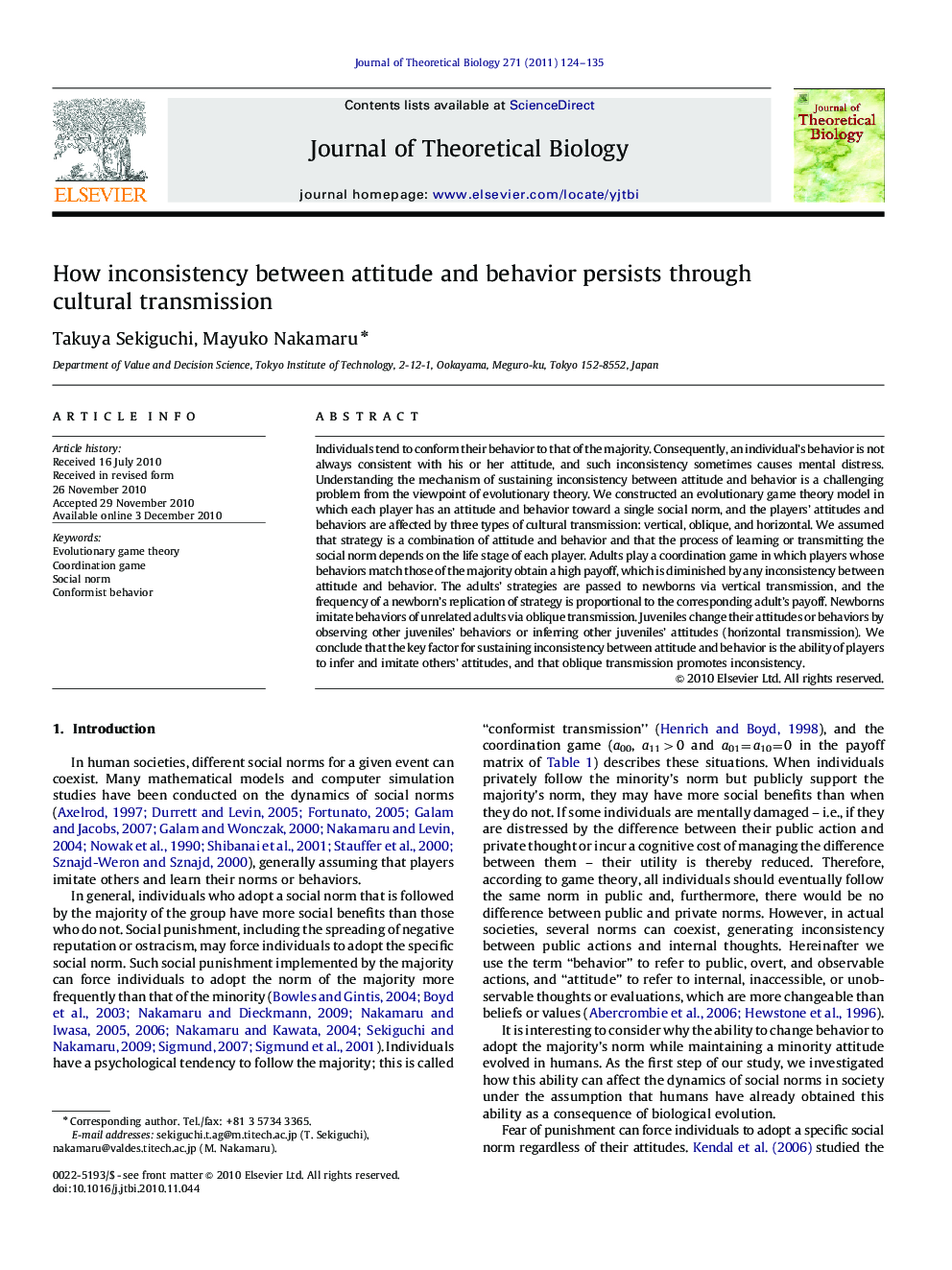| Article ID | Journal | Published Year | Pages | File Type |
|---|---|---|---|---|
| 4497143 | Journal of Theoretical Biology | 2011 | 12 Pages |
Individuals tend to conform their behavior to that of the majority. Consequently, an individual's behavior is not always consistent with his or her attitude, and such inconsistency sometimes causes mental distress. Understanding the mechanism of sustaining inconsistency between attitude and behavior is a challenging problem from the viewpoint of evolutionary theory. We constructed an evolutionary game theory model in which each player has an attitude and behavior toward a single social norm, and the players' attitudes and behaviors are affected by three types of cultural transmission: vertical, oblique, and horizontal. We assumed that strategy is a combination of attitude and behavior and that the process of learning or transmitting the social norm depends on the life stage of each player. Adults play a coordination game in which players whose behaviors match those of the majority obtain a high payoff, which is diminished by any inconsistency between attitude and behavior. The adults' strategies are passed to newborns via vertical transmission, and the frequency of a newborn's replication of strategy is proportional to the corresponding adult's payoff. Newborns imitate behaviors of unrelated adults via oblique transmission. Juveniles change their attitudes or behaviors by observing other juveniles' behaviors or inferring other juveniles' attitudes (horizontal transmission). We conclude that the key factor for sustaining inconsistency between attitude and behavior is the ability of players to infer and imitate others' attitudes, and that oblique transmission promotes inconsistency.
